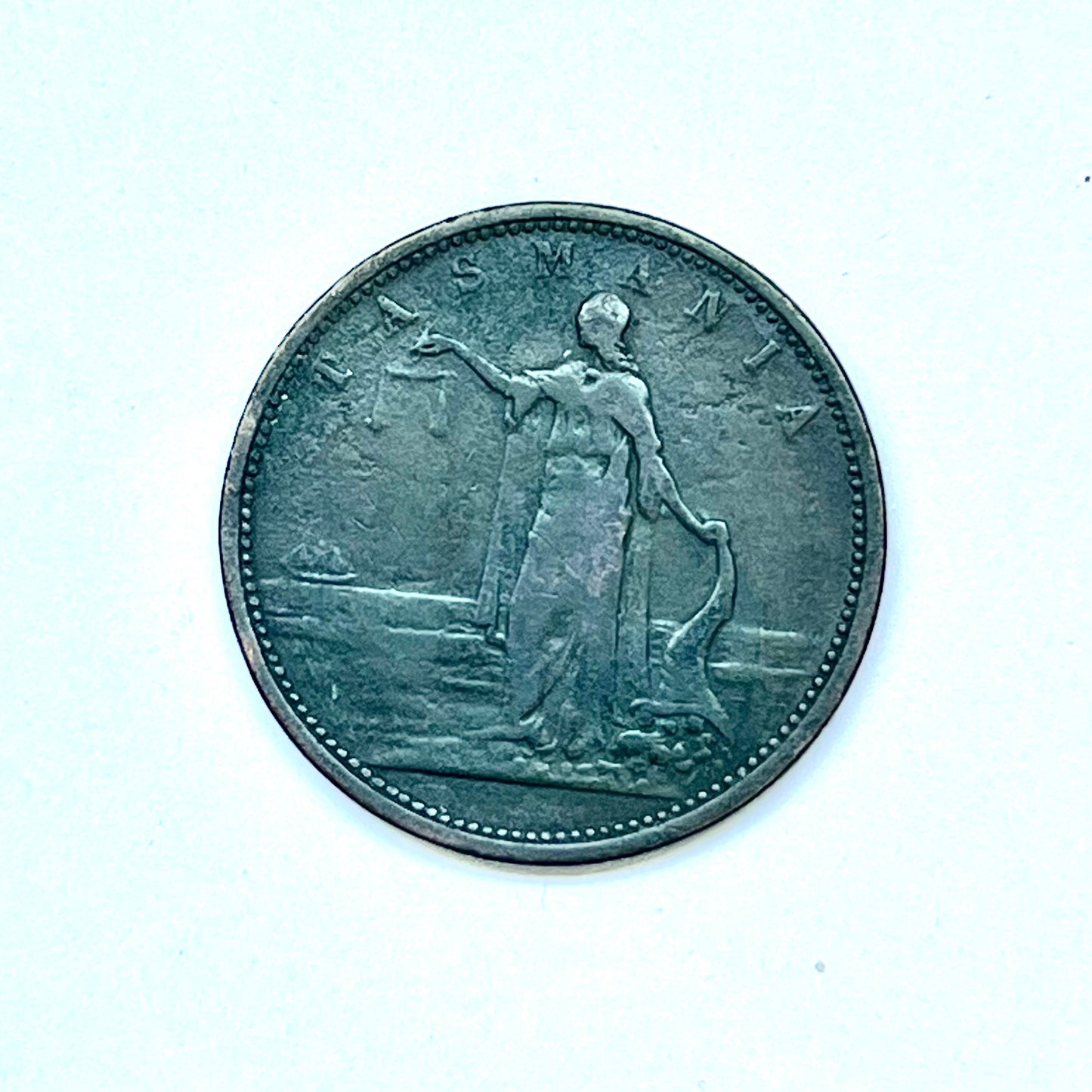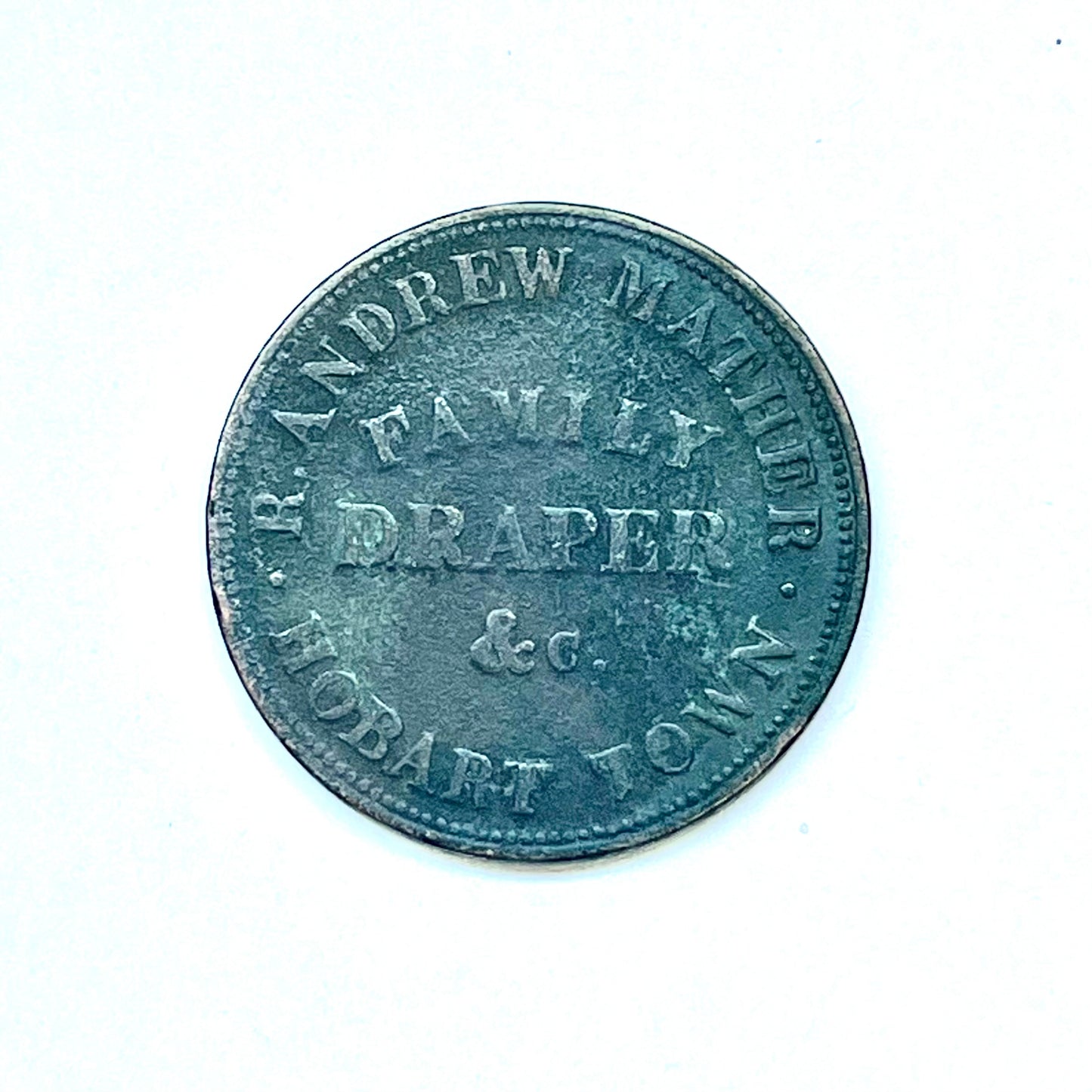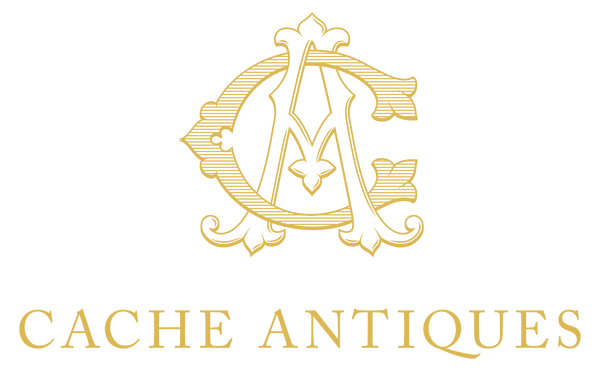cacheantiquessydney
Rare mid 19th century early Australian one penny store token for R. Andrew Mather, Family Draper, Hobart, Tasmania
Rare mid 19th century early Australian one penny store token for R. Andrew Mather, Family Draper, Hobart, Tasmania
Couldn't load pickup availability
Here we have a rare mid 19th century early Australian one penny store token for R. Andrew Mather, Family Draper, Hobart, Tasmania. The obverse has the text ‘R. ‘ANDREW MATHER FAMILY DRAPER HOBART TOWN. The reverse bears the text TASMANIA and an allegorical female image of Justice standing facing left, blindfolded and holding scales, with a sailing ship on the horizon. Ungraded but good antique condition, this would be an excellent candidate to submit for grading. This particular token was minted by Heaton & Sons, Birmingham, circa 1855-1860.
The firm was established in 1823 by Robert Andrew Mather Snr, who had arrived in Hobart with his wife Ann in 1822. Robert Andrew Mather Jnr was born and educated in Tasmania and managed the business from the late 1840s until his retirement in 1876, when his sons Robert and Thomas took control, changing the name of the store to Andrew Mather and Co.. Thomas retired from the business in 1894, and Robert was still managing the store in 1910, assisted by his two sons.
There is an interesting article dated 1856 in which Mr. Mather himself writes to defend the issuing of these copper tokens; in early Australia there was an urgent need for copper coinage, and relatively established businesses such as Mr. Mather’s issued their own copper tokens as change. He asserts that this issuance was “entirely for the convenience of trade” and that they proved so popular that his neighbours also requested as much as he could spare.
Below an excerpt from a 2007 newspaper article, with more context on early Australian store token economy:
“This curious sub-set of coin collecting came about because Australia was so late in establishing its own currency. In our early history rum was considered an important enough commodity to form the basis of the economy. Later, British or foreign coins were used whenever they were available…
The lack of small change was a problem for retailers and so, showing an entrepreneurial spirit, they started making their own.”
"Many local merchants still experienced a great shortage of low-denomination coins that could be used for small transactions on a daily basis," Crellin wrote. "Particularly so following the discovery of gold in 1851. Individual merchants began to distribute their own copper tokens from 1849 onwards. Usually manufactured in England, these tokens performed all the functions of official coinage."
Price marked at $100 AUD.
Measurements: 34 mm diameter.
Very good antique condition. Ungraded. Toning present commensurate with age. Light wear as pictured, overall well-struck and crisp marks.
References:
https://www.smh.com.au/business/token-economy-20070425-gdpz9l.html
Shipping & Returns
Shipping & Returns




